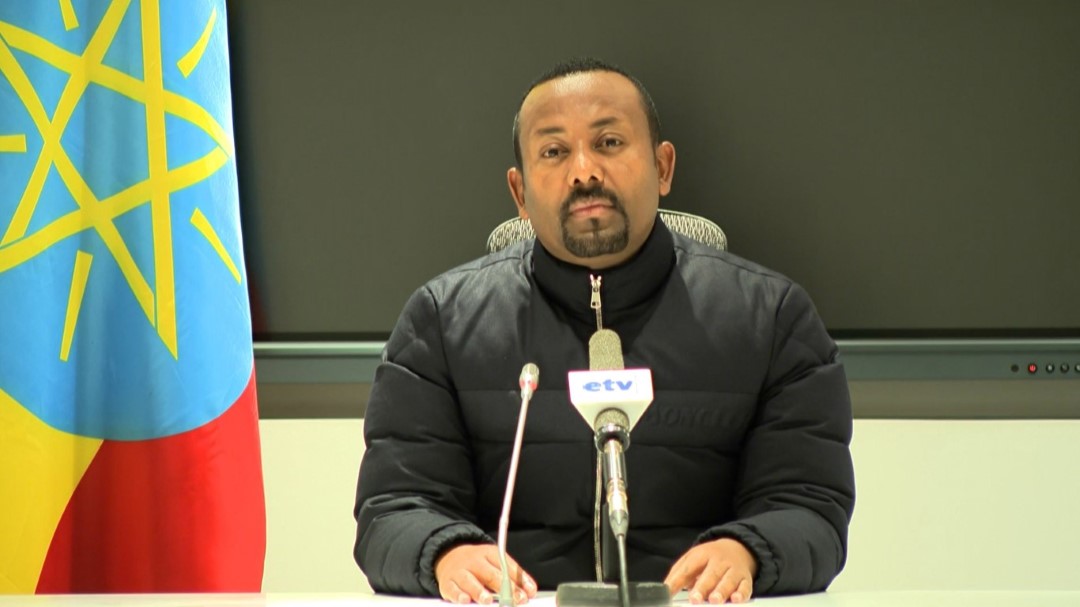Less than two years have passed since Ethiopian Prime Minister Abiy Ahmed was awarded the Nobel Peace Prize for what the awarding committee said was his efforts to promote peace in the region.
Fast forward and how things can change. Abiy’s government is no longer engaging in peace projects to end regional conflicts but rather ordering Ethiopian armed forces to begin a wide scale military invasion in the northern Tigray region, despite appeals from the international community to avert a conflict between the government and the ethnic community that ruled the country for decades.
In a speech on state television, deputy chief of the army said, “Our country has entered into unexpected war. The war will not come to the centre, it will end there (in Tigray).”
Prime Minister Abiy Ahmed ordered the invasion for what his government term as “retaliation for an attack by the Tigray People’s Liberation Front (TPLF) on its troops.”
Troops were mustered from across the country and dispatched to Tigray, the northernmost of Ethiopia’s nine regions, in a conflict that pits government troops against the TPLF.
For decades TPLF has been the dominant political force in the country’s multi-ethnic ruling coalition, until Abiy, a member of the Oromo ethnic group, took office two years ago.
Tigrayans account for just 5% of the population but dominated politics and the security forces after Tigrayan rebels under Meles Zenawi toppled Marxist military leader Mengistu Haile Mariam in 1991.
Tigray regional president Debretsion Gebremichael said its forces had foiled a plan by the federal troops to use artillery and arms stationed there to attack the region.
“We will use the artillery to defend Tigray. We will use them to destroy an attack from any direction,” he said on Tigray TV.
Oromos make up 35% of Ethiopia’s 110 million people but have not held power in its modern history and have long complained of political exclusion.
A government plan to expand the capital using Oromo farmland in 2015 triggered three years of protests and bloody repression that eventually forced the prime minister’s resignation and Abiy’s appointment.
Tigrayan leaders left the national ruling coalition after Prime Minister Abiy Ahmed was appointed in 2018. Some leaders have accused him of persecuting Tigrayans.
Although Abiy has rolled out greater freedoms nationwide, parts of western and southern Oromiya are under federal military control and Amnesty International has documented killings and abuse.
Tensions with the TPLF have been escalating since September, when Tigray held regional elections which the federal government called illegal. In recent days, both sides accused each other of plotting a military conflict.
The African Union, headquartered in Ethiopia’s capital, has been pushing for talks between both parties. However, the government resisted the initiative saying it has to eliminate the threat posed by the TPLF.
Dozens of federal troops were killed during the first day of fighting, and sources believe that the death toll could be higher. There was no word on casualties suffered by the TPLF. The government has cut all phone and internet communication in the region.
U.S. Secretary of State Mike Pompeo appeared to back Abiy in a tweet, which urged immediate action to restore peace and de-escalate the situation, while backing the government account that the TPLF was responsible for violence.
“We are deeply concerned by reports that the Tigray People’s Liberation Front carried out attacks on Ethiopian National Defense Force bases in Ethiopia’s Tigray region,” Pompeo wrote.
Ethiopia has suffered multiple outbreaks of violence since Abiy took office.
On Saturday, gunmen killed 32 people and torched more than 20 houses in the western part of the country, dominated by the Oromo community.

